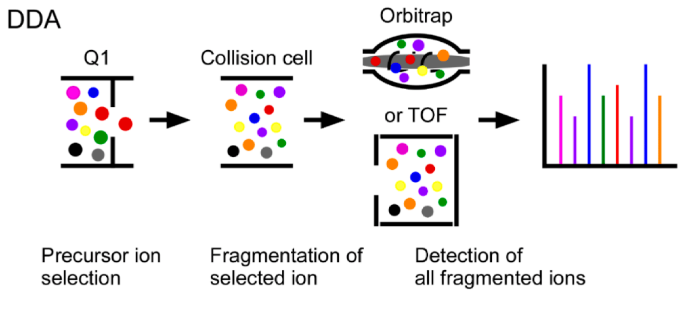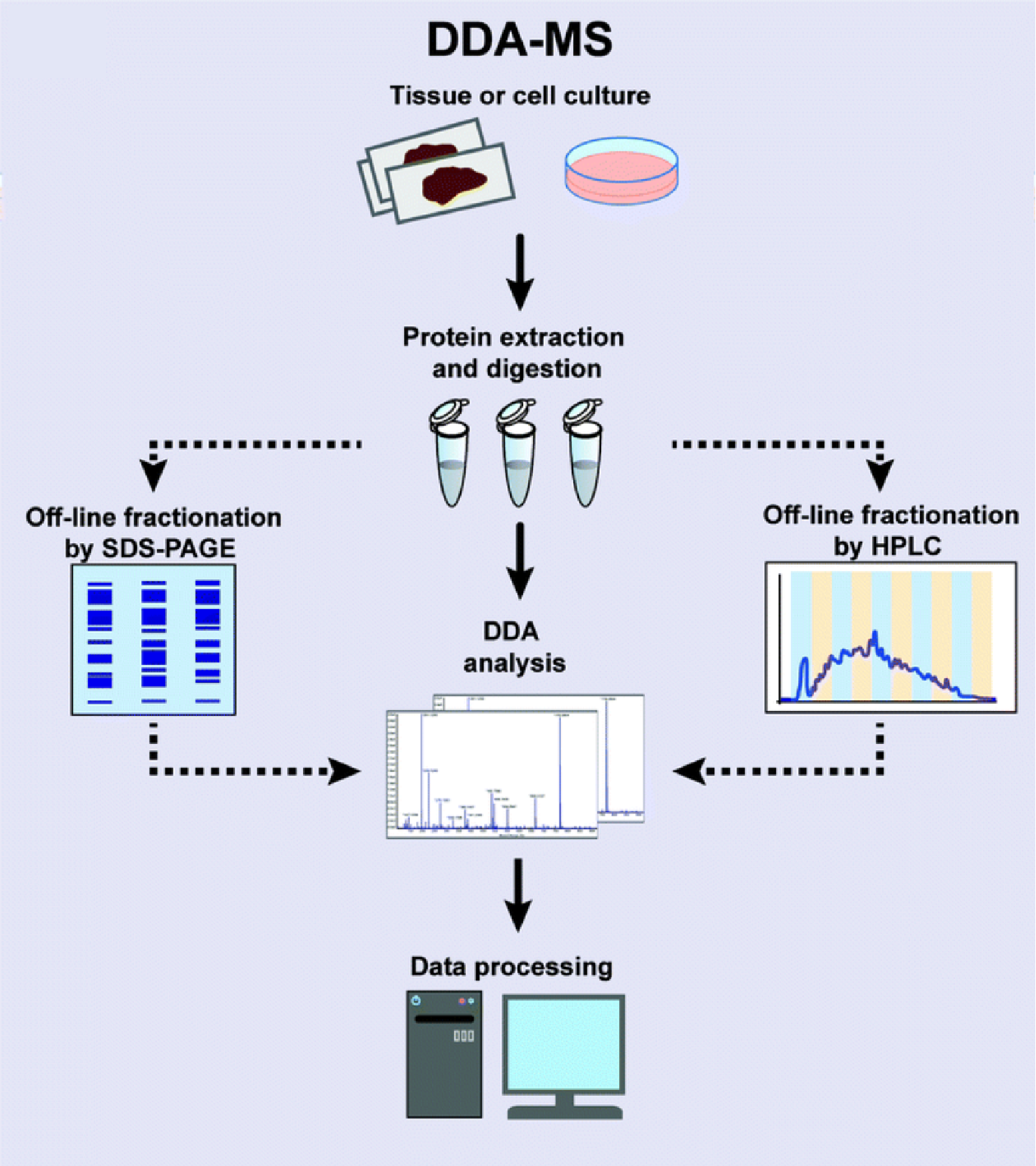Data-Dependent Acquisition Service
Data-Dependent Acquisition Service is a highly targeted mass spectrometry approach designed to provide detailed identification and characterization of proteins within complex biological samples. Data-Dependent Acquisition Service is particularly valuable for focused proteomics studies, offering high-quality spectral data to support in-depth analysis of specific proteins or peptides.
The principle of Data-Dependent Acquisition Service (DDA) involves the selective fragmentation of precursor ions based on predefined criteria, such as intensity or abundance. During analysis, the mass spectrometer dynamically identifies the most prominent ions for fragmentation, prioritizing those likely to provide the most informative data. This selective approach ensures the generation of high-resolution spectra, enabling precise identification and quantification of proteins. This selective nature makes Data-Dependent Acquisition Service well-suited for targeted proteomic studies.

Ryu, J. et al. Molecules. 2021.
Figure 1. Principles of Data-Dependent Acquisition (DDA)
The applications of DDA Service are vast and impactful. Data-Dependent Acquisition Service excels in protein identification, enabling the discovery of novel proteins and isoforms. In the realm of post-translational modifications, Data-Dependent Acquisition Service is instrumental in mapping phosphorylation, ubiquitination, glycosylation, and other modifications that regulate protein function. Additionally, Data-Dependent Acquisition Service plays a critical role in drug target discovery and validation, providing high-quality data essential for understanding protein interactions and pathways.
Service at MtoZ Biolabs
MtoZ Biolabs offers a cutting-edge Data-Dependent Acquisition Service tailored to meet the diverse needs of modern proteomics research. Utilizing state-of-the-art mass spectrometers like the Thermo Orbitrap Fusion Lumos, our team delivers unparalleled sensitivity and resolution in protein analysis. We provide customized experimental designs, from sample preparation to data interpretation, ensuring that each project receives the precise attention it demands. Our expertise in DDA empowers researchers to identify and quantify proteins with exceptional accuracy, driving advancements in fields such as drug discovery, biomarker identification, and systems biology.

Krasny, L. et al. Mol Omics. 2021.
Figure 2. Schematic Workflow of the Label-Free DDA-MS
Service Advantages
1. Advanced Analysis Platform: MtoZ Biolabs established an advanced Data-Dependent Acquisition Service platform, guaranteeing reliable, fast, and highly accurate analysis service.
2. Customizable Service: Our Data-Dependent Acquisition Services are tailored to suit specific research objectives, providing flexibility in experimental design and maximizing the relevance of results.
3. One-Time-Charge: Our pricing is transparent, no hidden fees or additional costs.
4. High-Data-Quality: Deep data coverage with strict data quality control. AI-powered bioinformatics platform integrates all data-dependent acquisition analysis data, providing clients with a comprehensive data report.
5. Fast Turnaround: The process from sample handling to report generation is efficient, shortening the analysis cycle.
Applications
1. Comprehensive Protein Identification
2. Post-Translational Modification Analysis
3. Biomarker Discovery and Validation
4. Drug Target Identification and Interaction Studies
5. Exploratory and Targeted Proteomics
FAQ
Q: How do I decide whether to use Data-Dependent Acquisition (DDA) or Data-Independent Acquisition (DIA) for my proteomics study?
The choice between DDA and DIA depends on your research goals and sample complexity. Data-dependent acquisition service is ideal for targeted analyses, such as identifying specific proteins or post-translational modifications, as it generates high-quality spectra for abundant ions. On the other hand, data-independent acquisition is better suited for comprehensive, large-scale studies where consistent quantification and broad proteome coverage are needed, especially for complex or low-abundance samples. For optimal results, DDA and DIA can be combined—using DDA to create spectral libraries and DIA for unbiased quantification across samples.
Deliverables
1. Comprehensive Experimental Details
2. Materials, Instruments, and Methods
3. Total Ion Chromatogram & Quality Control Assessment (project-dependent)
4. Data Analysis, Preprocessing, and Estimation (project-dependent)
5. Bioinformatics Analysis
6. Raw Data Files
How to order?







